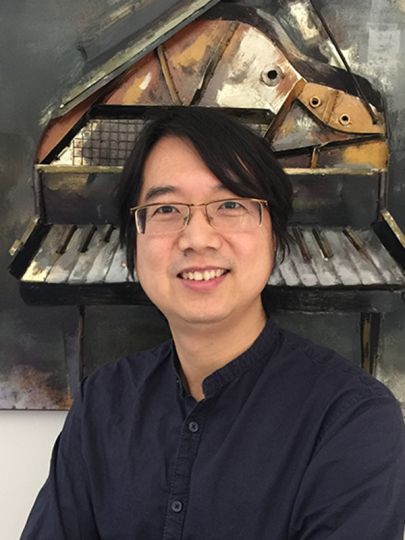Chunlong ChenDynamique de l'information génétique : bases fondamentales et cancer (DIG-CANCER) - CNRS / Institut Curie / Sorbonne Universités
Mes recherches
As a computational biologist, I have long term experience in using high throughput genomic approaches and genome-wide data analyses to address fundamental biology problems, with particular interest in DNA replication and gene transcription regulation as well as their impact on organization, evolution and stability of the genomes. I got my Ph.D. in bioinformatics on December 2007 under the direction of Dr. Laurence AMAR (Paris-Sud 11 University) and of Pr. Liang-Hu QU (Sun Yat-sen University, Guangzhou, P.R. China). I worked on computational identification of non-coding RNA (ncRNA) genes in eukaryote genomes. Since January 2008, I joined Dr Claude THERMES team at the Centre de Génétique Moléculaire (CGM) as post-doc in developing new high throughput genomic approaches to study DNA replication program of human cells and its impact on mutation landscape of the genome. I entered the CNRS as a junior researcher (CR) on October 2011 at CGM. With the support of ATIP/Avenir program, I set up my team at Institut Curie (UMR3244, Paris), and focus now on developing new high throughput genomic approaches and genome-wide data analyses to study DNA replication program at population level as well as at single molecular/cell level, and how its deregulation challenges genome instability and leads to human diseases.
Mon projet ATIP-Avenir
Study of the replication program by high-throughput single molecule DNA sequencing.
At each cell division, tens of thousands of origins are activated to ensure complete genome duplication of the human genome. This program must adapt to cell differentiation and development, and its deregulation can challenge genome stability and lead to mutations, cancer and many other genetic diseases.
However, despite intensive studies, the mechanisms that control where and when replication initiates remain poorly known. Although recent genome-wide techniques have made great progress, they have led to contrasted results possibly due to strong cell to cell heterogeneity. Indeed, they cannot study replication at single molecule level and are limited to determine the average replication program of populations of cells. DNA combing and related DNA fiber techniques allow to study replication at single molecule level and to take into account cell-to-cell variation, but these approaches are technically challenging, have a very low throughput and are very time consuming.
The aim of this proposal is to develop a new high-throughput approach to study the replication program by single molecule sequencing, since it’s a challenging issue in the field. Using this methodology, I will determine the degree of cell-to-cell heterogeneity of replication within cell populations of different human cell types. By bioinformatics analysis, I will study how the cell type-specific replication program is associated with cell-type specific transcriptional activity and chromatin organization. Finally, I will determine how replication stress alters the replication program leading to genome instability, in particular common fragile site instability. This will help to understand how cells use a large number of inefficient origins to ensure the timely duplication of their genome and how its deregulation will challenge genome instability. This innovative pluri-disciplinary project will establish novel techniques and provide important new data for the wider scientific communities working on DNA replication and human health.
